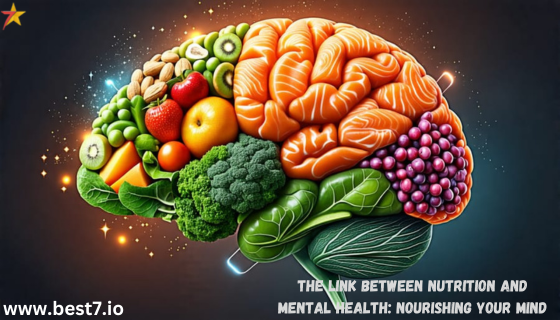
Over the past several years, there has been increasingly large amounts of attention placed on the role of nutrition in mental health. The research is in, and one thing psychologists agree on is that what we eat has a serious effect on our mental health, from cognition to mood. As more and more people view health as a whole-life approach, we take a “boots on the ground” perspective to see how nutrition affects mental health if you’re looking to live your best life.
Understanding the Biochemical Impact of Diet
On a biochemical level, diet (which is not just what you eat but also where it was grown) plays a role in mental health. Before jumping to the effect of food on the brain, it is clear that nutrients consumed in specific ways are essential for the brain’s proper functioning, influencing neurotransmitter production, hormonal balance, and inflammation. Optimizing levels of micronutrients may be particularly important for synthesizing neurotransmitters like serotonin and dopamine—chemicals critical for mood and emotional well-being.
The Role of Whole Foods in Mental Health
According to a study published in the journal Nutrients, diets high in whole foods—such as fruits, vegetables, whole grains, and healthy fats—may help reduce the risk of depression by 25%. This statistic highlights the significant role dietary decisions play in maintaining emotional well-being.
The Gut-Brain Connection
The most interesting work in nutrition and mental health research involves the gut-brain connection. The gut contains hundreds of trillions of bacteria that can either alleviate or worsen mental health. In fact, research shows the gut microbiome communicates with the brain in multiple ways, impacting mood and cognitive health.
Brain-Boosting Nutrients for Mental Wellness
There are specific nutrients that have emerged as essential for brain health and well-being. If incorporated into daily diets, these nutrients can make a meaningful difference in emotional health:
- Omega-3 Fatty Acids: These healthy fats have anti-inflammatory effects. Research has shown that high levels of omega-3s correlate with lower rates of depression and anxiety. Sources include fatty fish, walnuts, and flaxseeds.
- B Vitamins: Essential for producing neurotransmitters, particularly B6, B12, and folate, which are linked to mood regulation.
- Antioxidants: Found in berries, dark chocolate, and nuts, antioxidants help protect cognitive function by blocking free radicals.
- Vitamin D: Known as the “sunshine vitamin,” it’s crucial for brain function. Low levels have been associated with mood disorders, specifically depression.
Emotional Health and Dietary Choices
This concept, also known as “food and mood,” explores how our food choices impact emotional health. Diets abundant in fresh, whole foods are critical for brain functioning and stable moods:
- Balanced Diet: Evidence indicates that a balanced diet supports mental well-being.
- Mindful Eating: Practicing mindfulness in eating can alleviate anxiety and stress, which benefits mental health.
- Food for Stress Relief: Certain foods like nuts, seeds, and dark leafy greens help reduce stress due to their magnesium content.
The Importance of Nutrition and Mental Health Education
Nutrition and mental health education empower individuals to make informed dietary choices that benefit both body and mind. Education initiatives in community programs, schools, and healthcare settings are essential for spreading this knowledge.
- Workshops and Seminars: Community workshops offer wellness and nutrition insights.
- Resource Availability: Access to mental health resources, including nutritionists and counselors, supports holistic health management.
Overcoming Barriers to a Healthier Diet
Various barriers, including economic, geographic, and personal preferences, can hinder healthy dietary practices:
- Addressing Food Deserts: Community initiatives like farmers’ markets can improve access to nutritious foods.
- Coping Mechanisms: Learning to recognize comfort eating as a reaction to stress is the first step toward healthier choices.
How Nutrition Enhances Well-Being
As research confirms the link between food and mood, society is moving toward mindful consumption to support emotional well-being. When we choose nutrient-rich foods and create healthy eating habits, we strengthen our mental resilience.
- Encouraging Food Diversity: Consuming a variety of foods provides necessary nutrients and makes meals more enjoyable.
- Mindful Cooking: Preparing meals thoughtfully can reduce stress and help build positive eating habits.
The Future of Nutrition and Mental Health Awareness
With better nutrition, people can nurture their minds and grow from the experience, leading to a more fulfilled existence. Communities increasingly recognize the link between mental well-being and a healthy lifestyle and are providing nutritional foods and education. The future will likely see a widespread understanding of the relationship between food and psychological wellness, contributing to overall health.












